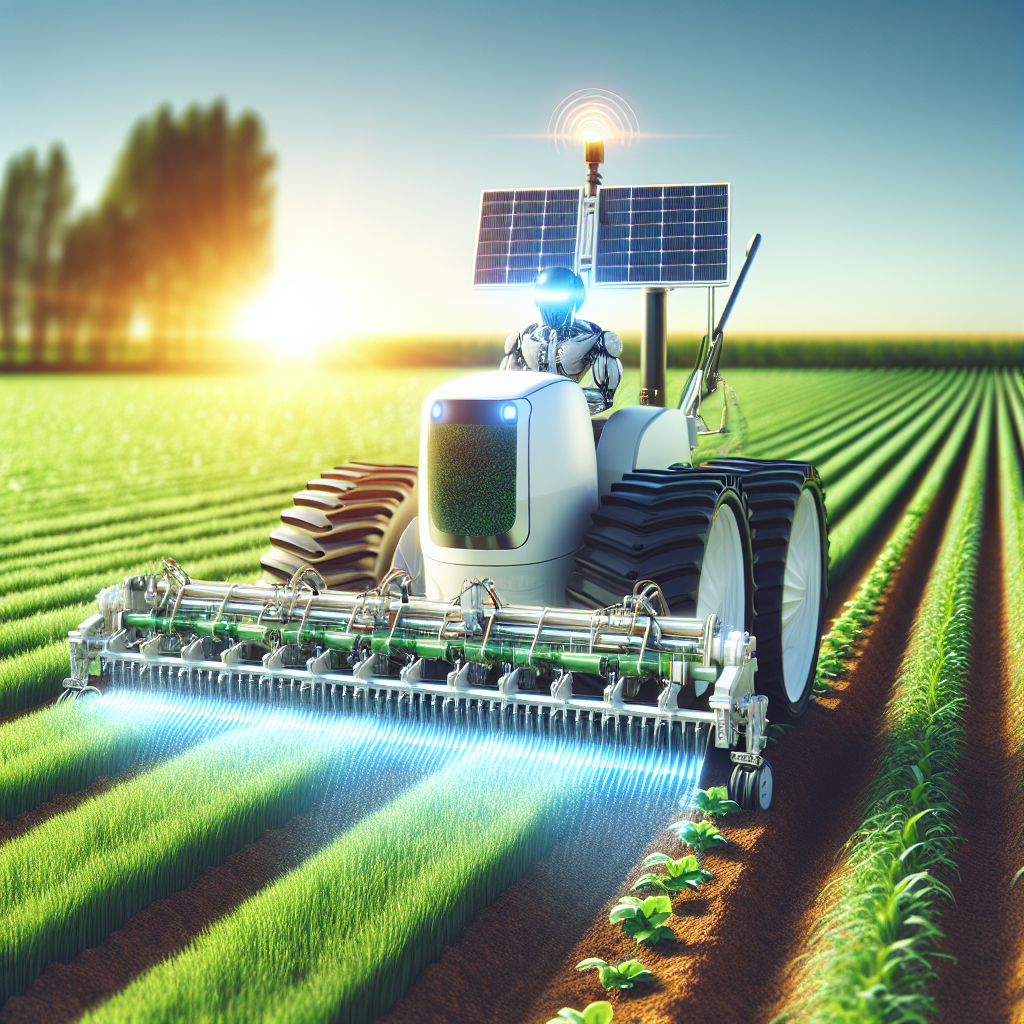The Impact of AI on Sustainable Agriculture
Artificial Intelligence (AI) has been making waves in almost every industry, and agriculture is no exception. AI technologies are revolutionizing the way farmers produce food, manage crops, and make decisions on the farm. In particular, AI has the potential to significantly impact sustainability in agriculture by improving efficiency, reducing waste, and increasing yields. This article will explore the various ways in which AI is transforming sustainable agriculture and the potential benefits it brings to farmers and the environment.
1. Precision Agriculture
One of the major ways in which AI is impacting sustainable agriculture is through precision agriculture. Precision agriculture involves using technology to optimize crop production, reduce waste, and increase efficiency. AI plays a crucial role in precision agriculture by analyzing large amounts of data to make real-time decisions on the farm. For example, AI-powered drones can be used to monitor crop health, soil conditions, and water usage, allowing farmers to make informed decisions about irrigation, fertilization, and pest control.
AI can also be used to create detailed maps of farmland, identifying areas that require specific attention and resources. By using AI to target inputs more accurately, farmers can reduce the use of chemicals and fertilizers, minimizing the impact on the environment and increasing the sustainability of their operations.
2. Crop Monitoring and Disease Detection
AI technologies are also being used to monitor crops and detect diseases early on. By analyzing images of crops taken from drones or satellites, AI algorithms can identify signs of stress, disease, or nutrient deficiencies. This early detection allows farmers to take action quickly, preventing the spread of disease and minimizing crop losses. By using AI to monitor crops, farmers can reduce the use of pesticides and chemicals, leading to a more sustainable and environmentally friendly farming practice.
3. Predictive Analytics
AI can also be used to predict crop yields, weather patterns, and market trends, allowing farmers to make more informed decisions about planting, harvesting, and selling their crops. By analyzing historical data and current trends, AI algorithms can provide insights into future crop yields, helping farmers to plan and optimize their operations.
Predictive analytics can also help farmers to adapt to changing weather patterns and climate conditions. By using AI to predict droughts, floods, or other extreme weather events, farmers can implement strategies to mitigate the impact on their crops and reduce losses. This proactive approach to farming can help to increase resilience and sustainability in agriculture.
4. Automation and Robotics
AI-powered robots and machinery are also transforming agriculture by automating labor-intensive tasks such as planting, weeding, and harvesting. By using AI to control robots and drones, farmers can increase efficiency, reduce labor costs, and minimize the use of chemical inputs. For example, AI-powered robots can be used to precisely plant seeds at optimal spacing, reducing waste and improving crop yields.
Automation and robotics can also help to address labor shortages in agriculture, particularly in countries where manual labor is in short supply. By using AI-powered machinery, farmers can increase productivity and profitability, while reducing the environmental impact of their operations.
5. FAQs
Q: How is AI being used in sustainable agriculture?
A: AI is being used in sustainable agriculture in various ways, including precision agriculture, crop monitoring and disease detection, predictive analytics, and automation and robotics. These technologies are helping farmers to increase efficiency, reduce waste, and improve sustainability in their operations.
Q: What are the benefits of AI in sustainable agriculture?
A: The benefits of AI in sustainable agriculture include increased efficiency, reduced waste, improved crop yields, and reduced environmental impact. By using AI technologies, farmers can make more informed decisions, optimize their operations, and increase the sustainability of their farming practices.
Q: How can farmers adopt AI in their operations?
A: Farmers can adopt AI in their operations by investing in AI-powered technologies such as drones, robots, and data analytics platforms. By working with AI companies and experts, farmers can implement these technologies on their farms and reap the benefits of AI in sustainable agriculture.
In conclusion, AI technologies are revolutionizing sustainable agriculture by increasing efficiency, reducing waste, and improving crop yields. By using AI for precision agriculture, crop monitoring, predictive analytics, and automation, farmers can optimize their operations and make more informed decisions on the farm. As AI continues to advance, the potential for sustainable agriculture to address global food security and environmental challenges is immense. By embracing AI technologies, farmers can increase resilience, productivity, and sustainability in agriculture, ensuring a more secure future for food production and the environment.

